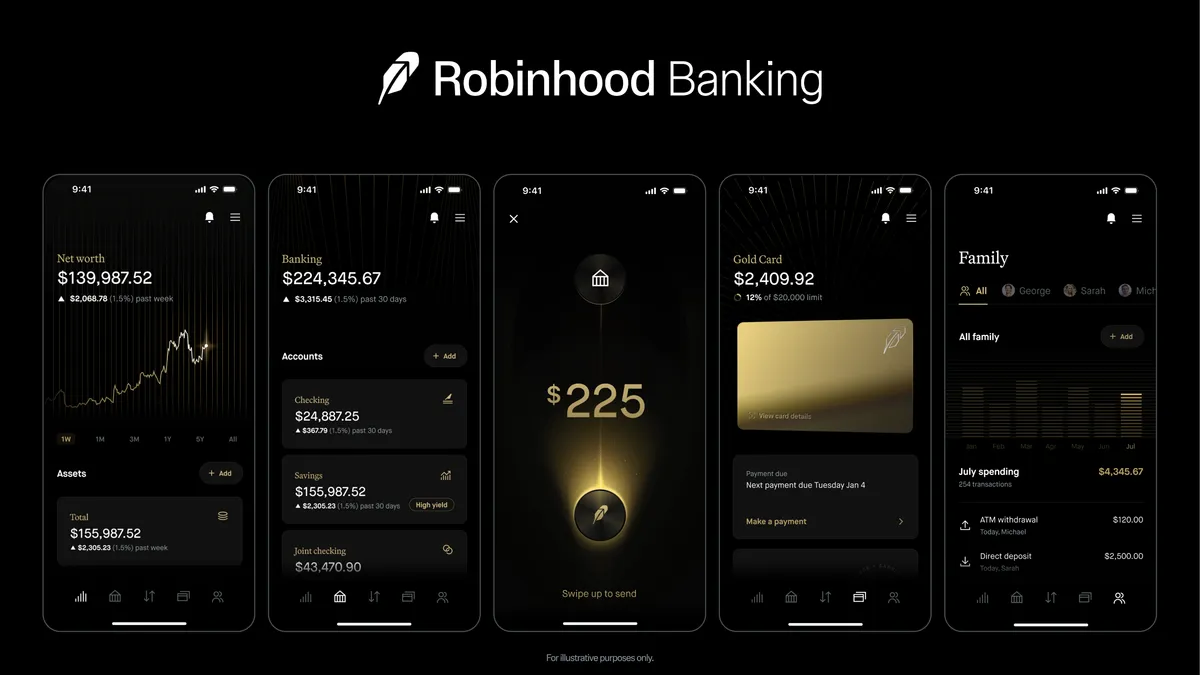Evolve Bank & Trust and Lineage Bank are facing a lawsuit accusing the lenders of negligence in monitoring and mismanagement of funds connected to the collapse of fintech Synapse.
The proposed class action lawsuit was filed by Dustin Justus in the U.S. District Court for the Western District of Tennessee on Friday.
Evolve’s parent company, Evolve Bancorp, was also named in the lawsuit.
The case was filed in response to a jurisdictional challenge Franklin, Tennessee-based Lineage raised in a Colorado lawsuit filed last November, Gerard Stranch, IV, the attorney who filed the lawsuit, told Banking Dive in an email. Synapse’s four partner banks, including American Bank, AMG National Trust, and Evolve, were sued over alleged mishandling of customer funds following the fintech’s collapse.
Justus, a resident of South Carolina, signed up for an account with Yotta Technologies, a savings gamification app, and deposited funds. Though Justus’ account balance showed $4,420.50 in funds, the transfer was canceled when Justus attempted to withdraw his funds in May last year. He received $3.46 in reconciliation months later and appealed the deposit, which was rejected, the lawsuit contends.
Fintechs Yotta and Juno partnered with Evolve and Lineage for banking services, with the now-bankrupt Synapse Financial Technologies providing middleware for account opening, transactions, and ledger management. Since fintechs cannot directly hold customer deposits, they offered web and mobile banking alternatives where customers deposited funds to partner banks through their platforms, with Synapse mediating these relationships and the banks maintaining actual custody of customer funds.
However, the banks’ lack of direct bank access to Synapse’s ledger and contingency planning, along with the failure to maintain their own copy of the ledger, all contributed to their respective failures to keep track of the money, according to the complaint.
“As a result of Defendants’ acts and omissions, Plaintiff and Class Members had their funds lost, stolen, or misplaced, while no single Defendant took responsibility for their failures,” the lawsuit said. “Further, Defendants have refused to return funds to these end users, leaving thousands of customers, like Plaintiff and Class Members, without access to their funds.”
A Lineage spokesperson, however, said the bank has reconciled its records with the records of the Federal Reserve, and all Synapse-linked funds received by Lineage have been accounted for.
“The critical question that remains is ‘why do the Synapse-generated trial balances exceed the collective balance of Synapse-related funds held at the banks?’ Lineage will continue cooperating with the Synapse bankruptcy trustee and interested parties in the pending court proceedings to understand this critical issue,” the spokesperson said via email.
The lawsuit claims the failure to maintain the account and provide access to customer funds confirmed material risk management failures, highlighting the Fed’s enforcement action against Evolve last June over shortcomings in the bank’s anti-money laundering, risk management, and consumer compliance programs.
The Fed cited West Memphis, Arkansas-based Evolve’s failure to “have in place an effective risk management framework” for its fintech partnerships. However, the central bank noted the enforcement action was independent of Synapse’s bankruptcy proceedings.
Lineage Bank, for its part, entered into a consent order with the Federal Deposit Insurance Corp. in January 2024 related to its fintech partnerships. Under the consent order, Lineage was required to implement an enhanced risk management program overseen by its board of directors, increase capital levels, and let go of some fintech partners.
“Our bank is only focused on traditional, community banking and is no longer engaged in Banking as a Service,” the Lineage spokesperson added.
The lawsuit alleges that both banks were aware of the compliance issues before Synapse’s bankruptcy filing.
“Banks are expected to maintain contingency and business continuity plans that address the potential failure of critical third parties. Synapse was clearly such a critical third party, and yet none of the Defendants had a plan in place for what to do in the event of operational issues at Synapse—let alone failure,” the complaint asserted.
The lawsuit alleges “unjust enrichment” since the banks have accrued interest and derived profits from the “unauthorized” use of the funds in their control, negligence, breach of fiduciary duty, failure to provide accounting details and documentation regarding the whereabouts of the money and inability to hold the funds in constructive trust for the customers.
The plaintiffs requested restitution and other equitable relief, injunction ordering defendants to stop the complained business practices, award of all economic and compensatory damages, reasonable expenses and attorneys' fees.
“We hope to identify where the money actually went and make the class members whole,” Stranch said.
Story so far
After Synapse declared bankruptcy in April 2024, its four partner banks – American Bank, AMG National Trust, Evolve, and Lineage – allegedly began reconciling customers’ funds and trying to correct the inaccurate ledgers.
Yotta hit Evolve with a lawsuit in September, alleging the lender “failed in its most basic duty” and stole from customers, while the lender sought to dismiss the lawsuit, noting the complaint fell short on allegations against Evolve and is more about Synapse.
Evolve completed its reconciliation in October, and planned customer fund distributions for November, but informed many users they would receive less money than shown on Synapse's ledger because missing funds are with other partner banks.
AMG and Lineage contested Evolve's findings, arguing in a Nov. 12 letter that accurate reconciliation was “impossible” due to Synapse's practice of making bulk transfers unrelated to specific users. The latest lawsuit noted that the lenders denied holding substantial undistributed funds, claiming they've already distributed over 99% (AMG) and 90% (Lineage) of customer funds.
Soon after, Synapse’s four partner banks were sued over alleged mishandling of customer funds in a federal court in Colorado.
“Lineage Bank has consistently demonstrated transparency, diligence, and accountability, returning approximately 99% of the funds it held to affected Synapse customers since Synapse collapsed,” a spokesperson for the lender said. “We recognize Synapse’s collapse has caused a real hardship to many, and we will continue to do our part to return the remaining 1% of Synapse-linked funds to their rightful owners.”
Though the banks claim that funds have been disbursed, many customers cannot access their deposits and have “no clear ability to discern” which bank or banks hold their money, the newest lawsuit noted.
Evolve declined to comment on active litigation.























